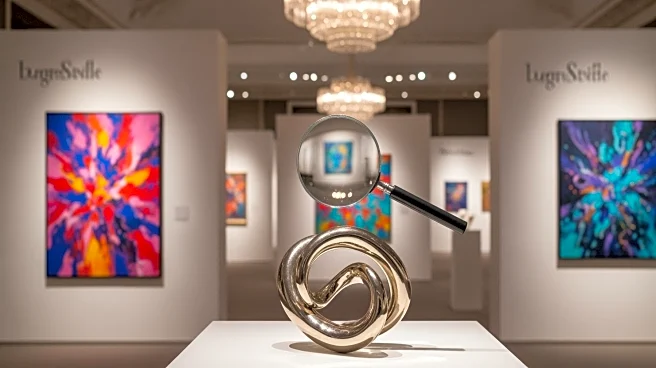What's Happening?
Les Roberts, a Miami art dealer previously charged with wire fraud and money laundering for selling forged Andy Warhol works, has opened a new store called Labubu Headquarters in Miami's Coconut Grove.
Despite his bond conditions prohibiting him from selling art, Roberts is now selling Labubus, popular figurines of furry monsters, which have become a global sensation. The store offers these collectibles starting at $35, with larger versions priced at $1,000. The legitimacy of these items has been questioned, as Roberts's shop is not associated with Pop Mart, the official seller of Labubus. Miami New Times staff attempted to verify the authenticity of a Labubu purchased from Roberts's store, but results were inconclusive.
Why It's Important?
The situation raises questions about the definition of art and the legal boundaries of Roberts's business activities. If Labubus are considered art, Roberts may be violating his bond conditions, which could have legal repercussions. The popularity of Labubus and their high auction prices suggest a significant market interest, potentially impacting the collectibles industry. The case also highlights the challenges in distinguishing between legitimate and counterfeit products in the art and collectibles market, affecting consumer trust and market dynamics.
What's Next?
Further investigation into the authenticity of the Labubus sold by Roberts may occur, potentially involving legal action if they are deemed counterfeit. Pop Mart's statement advising consumers to purchase through official channels may lead to increased scrutiny of unauthorized sellers. The outcome could influence how collectibles are classified legally, impacting Roberts's ability to continue his business under current legal restrictions.
Beyond the Headlines
This case touches on broader themes of art classification and the evolving nature of collectibles as art forms. It also raises ethical questions about consumer protection and the responsibilities of sellers in ensuring product authenticity. The situation may prompt discussions on the legal definitions of art and collectibles, influencing future regulations in the industry.










